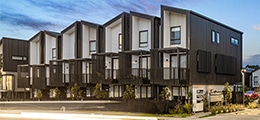1. Pre-Design & Site Analysis
This first step includes the gathering of all information required prior to commencing design. Scope of work would typically include:
- Site analysis and gathering planning and council information
- Measuring the existing building
- Developing brief
- Gathering initial advice from separate consultants
You may already have a lot of this information
2. Preliminary Sketch Design
This next step involves relating the client brief with the opportunities of the site through a series of iterations and solutions. Preliminary design is informed by a myriad of parameters including visual prospect, daylight orientation, existing trees / structures, town-planning requirements, and other applicable elements.
Initially, this stage is concerned with developing exterior forms and establishing spatial relationships. In some cases, we also address the look and style in terms of colour and materiality.
For preliminary design, the scope of work would typically involve:
- Proposed layout plans
- Key external sketches
- Study cross-sections
Successful preliminary designs normally integrates feedback derived from back-and-forth dialogue and communication with the client.
3. Developed Design
The next step is the refining of design ideas and shaping of a final building design, while structural and services design continue to be addressed. Space and form planning for both inside and out will be finalised with material selections and palates.
Required external consultants like engineers for the project will be engaged at this stage. For kitchens, we have found it best to involve a kitchen/cabinetry company at this stage.
Developed design drawings would typically involve:
- Site plans
- Fully resolved floor plans
- Elevations and relevant key study sections
- Window and Door Schedules
- Outline Specification
- Computer model or perspective sketch to sufficiently illustrate the concept to obtain a Project Information Memorandum from the local authority
In addition, a quantity surveyor is recommended at this stage to gain more comprehensive and independent costing to check that the construction budget reconciles with the client budget.
4. Resource Consent
If a Resource Consent application is required for a project, it is generally performed on a hourly time charge basis.
Resource Consents typically involve:
- A written Assessment of Effects on the Environment (AEE)
- Additional drawings/documents required for neighbours sign-off
- Council lodgement and answering council queries
5. Contract Documentation
These crucial final stages in the design process further develop the design and prepare the necessary documentation required for Building Consent, Tendering, and Construction of the Building Works.
We generally allow 6-8 weeks for processing Building Consent documentation that is lodged with the Council or Local Authority. At this stage, we also use the completed Contract Documentation for a Quantity Surveyor or Builder to provide an accurate quote.
6. Tendering and Negotiations
This stage of the process prepares the final design for construction through tendering for contractors to execute construction. We supply clients an appropriate schedule of services, with an agreed hourly rate charge.
The tendering process begins with the preparation of contract documentation and tender documents for supply to selected tenderers. There may be queries from the various contractors and sub-contractors which may prompt document revisions and issuing any notices to tenderers.
Overall, this stage typically involves:
- Assessing and analysing suitable contractors
- Checking tender compliance
- Recommending a main contractor
- Preparing tender report
The stage concludes with a selected contractor and notifying all tenderers of the results.
7. Contract Administration
This stage involves the observation of construction for conformity to construction drawings and specifications. We offer our clients an appropriate and comprehensive schedule of services, with an associated hourly rate charge. We generally negotiate the fees for this phase once the type of Contract and particular Contractor have been selected. Generally we recommend any works to be undertaken using a NZS3910 Contract.
We prefer to confirm the requirements for construction phase services when Contract Documentation is nearing completion. Contract Administration typically involves:
- Answering project queries and resolving architectural matters/ details
- Scheduling and recording minutes from regular site meetings
- Processing instructions in the form of Variation Price Requests, site instructions and variation orders
- Ensuring prices are fair and reasonable
- Administrating and certifying project payments
- Checking of shop drawings
- Providing any additional drawings/ details as required to provide clarity on site
- Administrating maintenance defects during the maintenance period
- Inspecting and approving Practical and Final Completion










